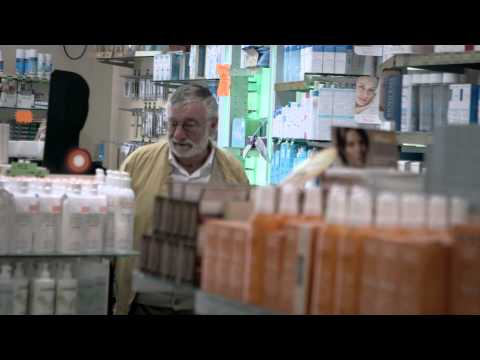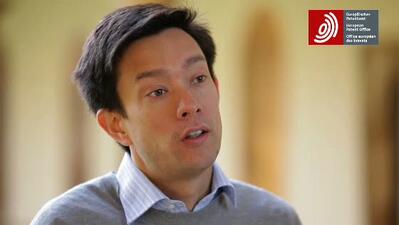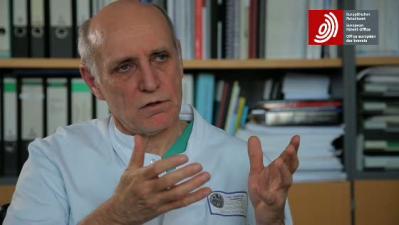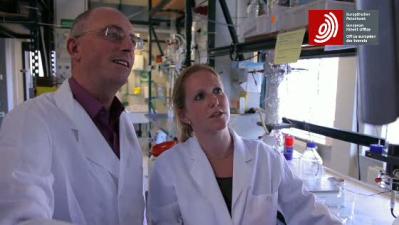Gilles Gosselin, Jean-Louis Imbach, Martin L. Bryant
New drug for hepatitis B treatment
Winner of the European Inventor Award 2012 in the category Research
Putting a curb on hepatitis B
Dr. Gilles Gosselin and his team at the French National Center for Scientific Research (CNRS) developed an effective drug for the treatment of hepatitis B, which has been successfully commercialised. One hundred times more infectious than HIV, hepatitis B is a particularly persistent disease that chronically affects 350 million people worldwide, despite the availability of vaccines.
Hepatitis B is a global killer. Some 2 billion people have been infected worldwide with the Hepatitis B virus (HBV), and around 350 million are considered chronic carriers. HBV is estimated to cause around 1 million deaths per year. Moreover, the medical risk of other diseases for HBV carriers, such as cancer and liver failure, is high.
In 1997, Dr. Gosselin and his co-inventors, Jean-Louis Imbach and Martin L. Bryant, synthesized a group of molecules that were found to be active against the Hepatitis B virus. After the establishment of a dedicated company, Idenix, who teamed up with Novartis, and joining hands with France’s Centre National de la Recherche Scientifque (CNRS), the team's drug development process resulted in a first patent application in 1998. A ‘collaborative lab’ of the three organisations was set up in 1999 to start the clinical studies for the new drug, Telbivudine, which resulted in FDA approval in 2006 and EU approval in 2007. The lab later became a role model for similar co-operation projects in France. Idenix also started to work with Novartis on the development of Hepatitis C and HIV drugs, and has maintained to this day its ties with the CNRS, where Dr Gilles Gosselin is Research Director.
A potent new drug
Telbivudine is an efficient, antiviral-type of drug for combating hepatitis B, either alone or in combination with other treatments. Using a nucleoside structure, it works on the same principles as drugs used in the fight against retroviruses, such as HIV, or different forms of herpes viruses. By blocking the hepatitis B virus from replicating, the molecule can lower the amount of virus in the body, and provides substantial medical benefits to the patient. Administered orally, Telbivudine has a potent antiviral activity and can be easily combined with other hepatitis B treatments.
The market for treatment of chronic hepatitis B is large, not least because of the serious risks of co-morbidity (cancer, liver failure, etc.) and the fact that many HBV infections go unnoticed because there are no symptoms. The market was estimated at some USD 1.3 bn in 2009, and is expected to grow further by 1.3% annually until 2017.
Patents have played a vital role in the successful development and commercialisation of the drug. The patent on which the nomination of Dr. Gosselin and his team is based was granted in 2005, and is part of a large family of patents: With their work the three inventors created 139 patent families, half of which are concerned with HBV and its treatment. Since 2000, more than 1 000 patent applications were filed every year in relation with hepatitis B treatments. Dr. Gosselin (28 applications) and Prof. Imbach (32) are ranked fourth and third respectively among the list of HBV-related patents, and their patents are frequently cited in other patent applications, indicating their impact on overall inventive activity in the field. Dr. Gosselin is still actively researching new anti-viral drugs, specifically against hepatitis C.
Contact
European Inventor Award and Young Inventors Prize queries:
european-inventor@epo.org Subscribe to the European Inventor Award newsletterMedia-related queries:
Contact our Press team#InventorAward #YoungInventors



